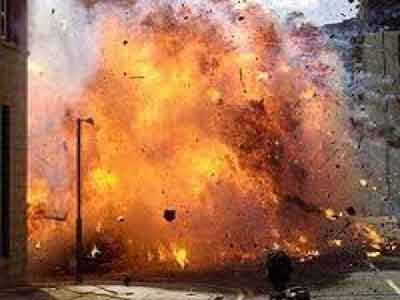
At least 46 people died Thursday when a pair of suicide bombings hit the Lebanese capital. More than 200 others were wounded.
Lebanon appears to be the latest nation victimized by ISIS’ wrath following the militant group’s claim of responsibility for the attack. Here are details about what’s going on in Lebanon:
Who is to blame?
While the government has not named the attackers, the terror group ISIS is proudly thumping its chest.
A would-be suicide bomber who survived the attack told investigators he was an ISIS recruit. The Lebanese national said he and three other attackers arrived in Lebanon from Syria two days ago, according to a source.
Lebanese intelligence officials said the bombers could be part of a cell dispatched to Beirut by ISIS leadership, but investigators are working to verify the surviving suspect’s claim.
ISIS is also purportedly circulating a statement on social media claiming responsibility for the blasts. CNN hasn’t confirmed the authenticity of the statement.
Why would ISIS target Lebanon?
If the terror group is responsible for the attacks, the reasons are endless.
For starters, Lebanon shares a border with war-ravaged Syria, making it an accessible target. More than 1 million refugees escaping regional conflicts have flooded into Lebanon, and the nation’s infrastructure and services are buckling under the pressure.
Then there’s the sectarian issue. Hezbollah — a Lebanon-based Shiite militia — is a powerful political party with a strong presence in the area targeted.
ISIS militants are Sunni extremists and have described Hezbollah as “the Shiite Satan party.” Sunnis consider Shiites deniers of their faith. One of the suicide bombers even tried to get inside a Shiite mosque, but was stopped, a government source said.
The fact that Hezbollah supports the Syria government in its fight against ISIS adds another layer of complexity to their dynamic.
Who were the suicide bombers?
Lebanon has not released their identities.
One would-be suicide bomber survived the attack and is in custody. The Lebanese national told authorities he and three other attackers arrived from Syria two days ago, the source said.
Three other bombers were killed in the explosions.
Police are investigating whether two of the bombers were Palestinians from a nearby refugee camp where ISIS has been recruiting, a Lebanese government source said.
Has Lebanon been targeted before?
Yes.
While Lebanon has seen a spate of bombings in the past, ISIS does not have a large presence in the nation and has not taken credit for all the attacks.
But it claimed responsibility for a car bombing in the capital last year, piling on to violence involving numerous factions in recent decades.
Most of that bloodshed has been limited to the Syrian border, though not all, as evidenced by a November 2013 Beirut bombing that killed at least 23 people and wounded about 150 more.
The al Qaeda-linked Abdullah Azzam Brigades claimed responsibility for that bombing and warned of more to come unless Hezbollah stopped sending fighters to support Syrian government forces.
What does this mean for Lebanon?
Lebanon has been described as a stable instability — a country where different factions have lived in relative peace.
Middle East analyst Rami Khouri, who is based in Beirut, said the recent surge in violence in Lebanon is part of larger, regional turmoil.
“We are seeing the greatest proxy war of modern times playing itself out in Lebanon and Syria and Iraq, that have now become really one battlefield in which two great ideological camps are fighting to the death like gladiators,” he said.
Political divisions and ideological tensions in Lebanon date to several decades, Khouri said.
But they have been reinforced by the emergence of radical Islamist terrorist groups in the nation and surrounding regions.
CNN

Leave a Reply
You must be logged in to post a comment.